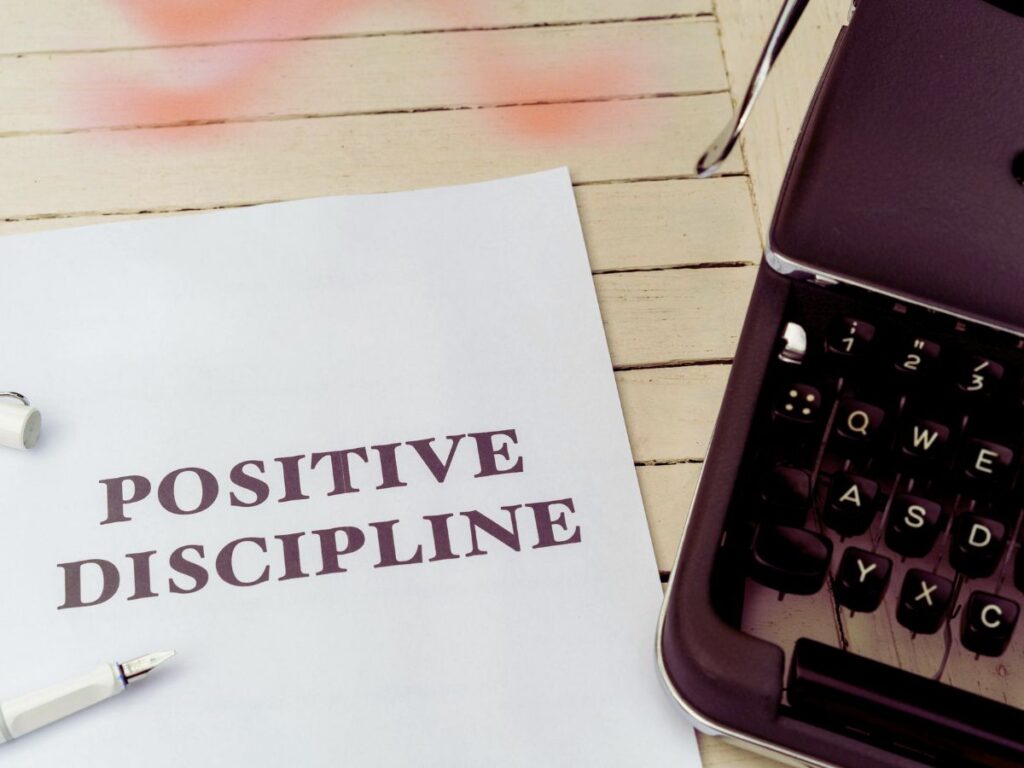Introduction
Are consistency and discipline the same? In the journey towards personal and professional growth, two fundamental principles stand out as crucial pillars: moral values and obedience. These generalities which are the basis for everything else although they are simple are the people’s key to success in any area of human endeavor. From this point forth, we shall analyze the topic of consistency and discipline in depth; how they benefit our success, how they can become habitual, and what measures to take if they are absent.

What is Consistency?
Why is consistency so powerful? If you succeed in behaving in a consistent and demanding manner, a certain level of success could be guaranteed, if you use an approach of this kind for some time. It requires your entire being; implements the requisite amount of sheer hard work; and continues even when there happen to be reversals. Frequentness successes the determination, stability, and retardation, while which way forward this leads usually comes along with modification getting hold of the given areas and produces better outcomes. In private, consistency could mean the regular practicing of positive behaviors and routines with no consideration that there might be a step ahead in consistency and discipline.
The Importance of Consistency:
Consistency breeds mastery. The act of repetition the process of which can involve learning new skills or practicing sports or any other requires the completion of the objective task, and our skills in such area are enhanced more and more. Long periods and repeated acts of behavior finally help in formulating the intensity and therefore, overcoming the resistance or procrastination. It is not only the short-term but the long-term how gradual habit-making is and eventually very achievable.
Consistency is crucial because:
- It builds trust and credibility: Finally, a meaningful progression of thoughtless actions can illustrate reliability, in people’s opinion.
- It fosters progress: Small steps like that add up and show us step by step what we can do which can also be regarded as magnificent fulfilments.
- It reinforces habits: Continuity builds such activities into habitual actions, therefore they nearly turn into things that mindlessly go on.
- It sustains motivation: No matter whether it is by small gains or breakthroughs, bit-by-bit success provides proof that you can achieve it, resulting in motivation, determination, and inspiration.
What is Discipline?
Discipline materializes as control of oneself – which requires restraining yourself from any spontaneous feeling, action, or urge and chaining them to defined goals. Determination is a major factor in this game since it lays the agenda in that you plot towards greater things and overcome distractions or temptations however disturbing. Discipline can be considered as a combination of many things which include; regulation, concentration, and persistence to reach the peak of consistency and discipline.
The Importance of Discipline:
Discipline ensembles a linkage between dreams and actions. It is not only a good thing that it keeps people vigilant, allows them to choose the right course of action, and organizes their affairs promptly, but helps them to be able to think clearly. Discipline is the key factor to develop character; it assists in building resilience, self-mastery, and hard work which are the basic skills to be successful in any field of life.
The Role of Discipline
Contrarily, discipline is the ability to control your temptations, emotions, and actions to achieve a given outcome. However, its central method comprises deliberate decision-making without diversion or hindrance that meets the set long-term goals. Self-discipline provides us with the needed structure and the ability to focus and deal with problems on our own, very quickly.
What is the key to discipline? Discipline is essential because:
- It cultivates self-control: Discipline gives you the power to bypass instant gratification quitting the present reward for the long-term benefit.
- It enhances decision-making: Disciplined people are indeed in full control of their minds and always make correct choices toward their ambitions.
- It promotes resilience: On top of this discipline, you can deal with obstacles, and however, go ahead step by step.
- It encourages growth: Discipline is the tool through which you consciously push your boundaries to reach a personal and professional level that you have never attained before as in consistency and discipline.

The Synergy of Consistency and Discipline
Why is consistency important in discipline? Consistency and discipline are made more efficacious by the fact of their synergistic complementarity. Continuity takes motivation on board for a long time spirit, on the other side, rules represent the backbone and the focus that one should be centered on to keep continuity. While these things may seem simple individually, put together, they function as an unstoppable force that drives individuals forward and up.
How to build consistency and discipline?
Set Clear, Specific Goals:
Identify the goal that you desire – the action plan and the steps to tangible attainment. Specific goals are beneficial here because they help to steer and as such they give one a clear purpose.
Create a Routine:
To cultivate consistency and discipline, create a set of tasks that should stretch from day to day or time to time based on your wishes for the future. Regular routines lift off the burden of decision-making and serve as guard fences towards success.
Use Time Blocking:
Divide the day into specific moments for the most urgent issues and dedicate yourself to them irrevocably. Time sectioning improves productivity, bringing the performance on the menu and making progress consistent due to consistency and discipline.
Practice Self-Reflection:
Start with setting a timeline for your goal, and follow through it as best as you can. Then track your progress, and see where you need to improve. One of the most helpful things is self-assessment, which allows you to be accountable and then correct your approach if something is not working as it should.
Stay Committed, Not Motivated:
Motivation occasionally fluctuates from time to time, but steadfastness keeps slowly going on during the span. Develop a mindset of commitment to goals and chase those goals even when motivation levels are low.
Build Accountability:
Connect with a truly close friend or a mentor who can never let you stop. You need a discussion partner who has the power to take the ball from you in case you breathe and to bring you a cup of water in case you sweat. They should be a person who can never let you stop. Transparency holds employees responsible and also motivates them to observe regularity.
Embrace Imperfect Action:
Do not just sit tight, waiting for the best possible conditions or motivation to come by. Even in small things, take the steps every day, even if they don’t work. What matters is progress rather than betterment.
Practice Self-Discipline Daily:
Keep yourself constantly exercising the self-discipline muscle by practicing small acts of willpower. Start with a simple task and then try to challenge yourself by adding a little more difficulty to achieve your level of consistency and discipline.
Overcoming Challenges
Why do I struggle with consistency and discipline? It is not that easy to be always disciplined and be on the track. Procrastination, distractions, self-doubt, and burnout are some of the most presenting struggles. To overcome these challenges:
Identify Triggers:
Note the cause of your procrastination or diversion and come up with ways of resolving the problem.
Stay Focused on Your “Why”:
Each time negative thoughts come up, bring your deeper reasons back to the forefront. Remember what prompted you to identify these targets.
Practice Self-Care:
Factor in rest, nutrition, and emotional health to lessen the burnout rate and stay focused.
Enhanced Productivity:
Disciplined routines and continuous efforts, enable us to take advantage of improvement and productivity simultaneously as in consistency and discipline.
Improved Self-Esteem:
We can further enhance our confidence and self-assurance by being reliable and punctual when we pursue our goals.
Stress Reduction:
Obtaining a clear target and a disciplined manner of acting decreases stress through effective control and achievement.
Long-Term Success:
Regularity and experienced persistence will ultimately add up to the result, in which the success and expansion will be rather unobtrusive and natural.

Practical Strategies for Applying Consistency and Discipline:
- .Make the list of tasks dependent on their degree of importance and due date.
- Subdivide important goals into the smaller, doable procedures.
- Set deadlines, make appointments, and honor all the deadlines.
- Failure is a teacher. So, examine the failures make a note of those lessons, and upgrade your strategies periodically.
- Cheering for thresholds will be a great way to keep going especially in times of distress when we will need to boost our morale and affirm the things that are going in the right way.
Real-Life Examples
Athletes
Discipline becomes prevalent through strict schedules, training routines, and habitual practices of athletes.
Successful Entrepreneurs
Entrepreneurs are showing consistency by working on getting closer to a business goal in a moment despite challenges.
Authors and Artists
Creatives exercise discipline by continuously doing their craft, such as writing, daily and striving to improve their craft by whosoever means available due to their consistency and discipline.
Professional Development:
Be able to keep improving your abilities through everlasting learning and focusing on tasks at work instead of having side work.
Health and Fitness:
I was able to achieve all these with the help of exercise routines, balanced meals, adequate rest, and the backing of a dedicated lifestyle due to consistency and discipline.
Financial Stability:
To name a few, repeatedly setting money aside while planning the budget and spending is one of them.
Relationships:
Development of sincere attachment to each other by constant talking, empathy, and mutual respect.
Conclusion:
These elements – consistency and discipline, are not inborn qualities but traits that must be acquired. Practice is the tool that will make these features become acquired behavior. Through these principles, everybody has a chance to achieve their dreams, be wise, and end up in a fulfilling and prosperous life. Keep in mind that improvement and order are not referred to a few periods but to a lifetime hardship that you have to undertake so that you can continue your progress.

